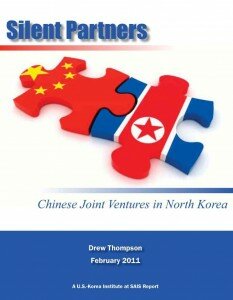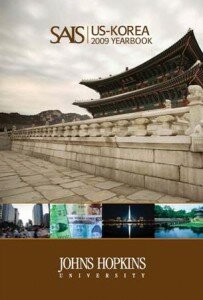In and event on April 13, 2010, Sam Jaffe and Myung Oak Kim, co-authors of the recently released book, The New Korea: An Inside Look at South Korea’s Economic Rise, discussed how South Korea differed from the United States in its responses to the current recession, and what lessons the United States can learn from South Korea’s handling of the global financial crisis.
In their presentation, Sam and Myung Oak proposed that the true miracle about South Korea was not the rapid economic growth it experienced in the last few decades, but rather the cultural transformations it underwent in the process, changing from an autocratic, inward-looking, ethnically homogeneous society into a democratic society that has embraced multiculturalism and opened up to the outside world.
The traumatizing effect of the 1997 “IMF crisis” taught South Korea some valuable lessons that it was later able to apply successfully to the most recent economic downturn. Jaffe explained that the terms “rubber ball” and “dead cat” bounce are used by Wall Street traders to describe different stock performances. South Korea is like a “rubber ball” because its economy has shown resilience during the current recession. The recent performance of the US economy, however, is described as a “dead cat” bounce because it is still struggling to recover from the crisis. Jaffe argued that there are three main reasons for South Korea’s superior economic performance following the downturn. First, Korea’s culture of job security and aversion to layoffs led Korean companies to implement job-sharing programs, in which instead of one employee being fired and another retained, two people shared the same job and split the hours and wages. Second, the South Korean government drastically devalued the won (the South Korean currency) in order to boost exports and quickly improve the economy. Third, during the IMF crisis, Korean companies focused on strategic long-term planning rather than worrying about the short-term effects of the crisis, which allowed them to not only emerge from the crisis, but to also enjoy tremendous success today. Jaffe stated that he believes that these are all lessons that the U.S. can learn from South Korea in dealing with the current (and future) economic recessions.
Download a transcript of the event, “The Rubber Ball and Dead Cat Bounce: Korea’s Recovery from the Global Recession and Lessons for the U.S.” (Audio coming soon.)
BIOGRAPHY
Sam Jaffe is an analyst in the field of renewable energy for IDC Energy Insights, a multinational research and advisory company. Previously, he ran his own consulting company, Panea Energy, which focused on the energy storage and renewable energy fields. Prior to that, Mr. Jaffe was a magazine journalist writing for publications ranging from Scientific American to Wired to The New Republic. He also served on staff at several publications, including BusinessWeek, The Wall Street Journal and Bloomberg. He has an M.A. from New York University and a B.A. from Wake Forest University. He lives in Evergreen, Colorado, with his wife, Myung Oak Kim, and their three children.
Myung Oak Kim is a communications manager for the Governor of Colorado Bill Ritter Jr. Previously, she was an investigative reporter for The Rocky Mountain News and prior to that for the Philadelphia Daily News. As a reporter, she won numerous regional and national awards. Ms. Kim has a B.A. from New York University. She was born in Seoul, South Korea. She lives in Evergreen, Colorado with her husband, Sam Jaffe, and their three children.
 On February 3, 2011, the U.S.-Korea Institute at SAIS released a new report by Drew Thompson, Director of China Studies at The Nixon Center: Silent Partners: Chinese Joint Ventures in North Korea. China is considered North Korea’s economic lifeline. Chinese aid, trade and investment is critical to North Korea’s social stability and economic productivity and a key source of technology and hard currency. Presumably, without this trade and investment, Kim Jong-il would lack the means to secure the allegiance of elites that support his rule, making trade and investment with China particularly important for ensuring the regime’s survival. Joint ventures with China are an important aspect of the bilateral relationship, because in addition to propping up the regime in Pyongyang, they contribute to economic development in China’s northeastern “rust belt.” These Chinese financial investments in the DPRK are geopolitically significant not only in terms of Chinese strategic interests but also for South Korean aspirations to unify the peninsula.
On February 3, 2011, the U.S.-Korea Institute at SAIS released a new report by Drew Thompson, Director of China Studies at The Nixon Center: Silent Partners: Chinese Joint Ventures in North Korea. China is considered North Korea’s economic lifeline. Chinese aid, trade and investment is critical to North Korea’s social stability and economic productivity and a key source of technology and hard currency. Presumably, without this trade and investment, Kim Jong-il would lack the means to secure the allegiance of elites that support his rule, making trade and investment with China particularly important for ensuring the regime’s survival. Joint ventures with China are an important aspect of the bilateral relationship, because in addition to propping up the regime in Pyongyang, they contribute to economic development in China’s northeastern “rust belt.” These Chinese financial investments in the DPRK are geopolitically significant not only in terms of Chinese strategic interests but also for South Korean aspirations to unify the peninsula.


